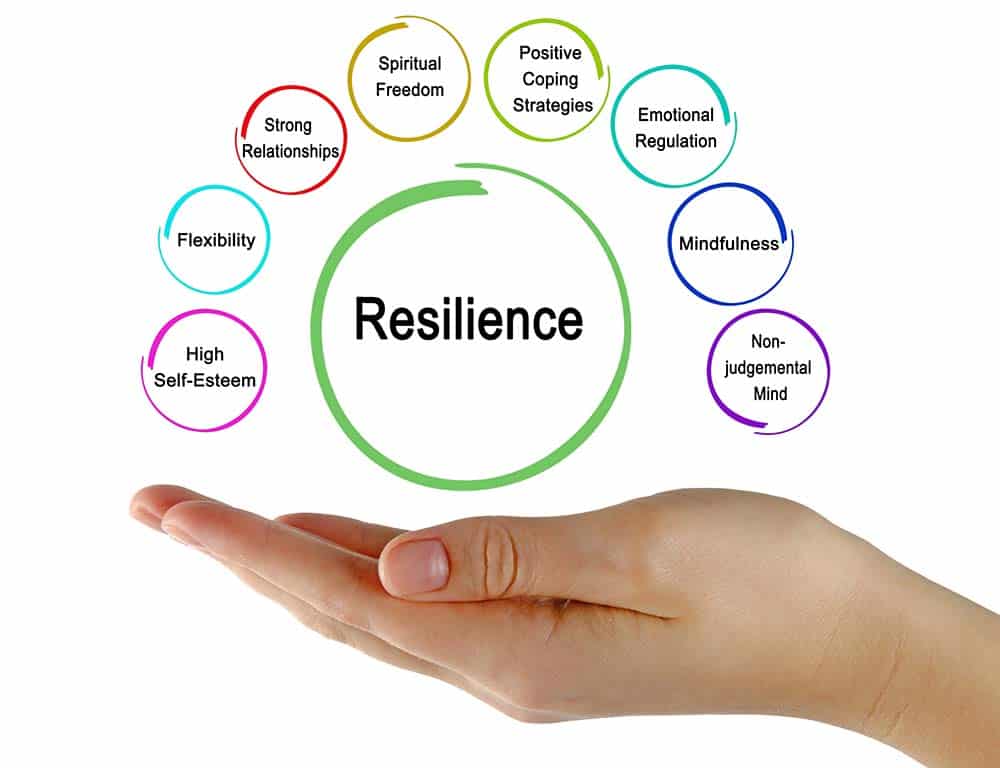Building Mental Resilience: The Key To Lasting Peace
In today’s world, stress and challenge are always running high there and beyond and pushing us in ways mentally and emotionally more than we expect. Mental resilience is the skill of being able to adapt yourself, recover, and even thrive in the face of adversity. Instead of being able to bounce back from setbacks, mental resilience is the ability to stay calm and balanced when things go badly.
What Is Mental Resilience?
Mental resilience is the ability to handle stress, challenges, and misfortune without your psychological well-being being compromised. Being resilient does not mean stress does not affect us, but individuals resilient have a tool kit of strategies that assist them in dealing with the pitfalls of living. They are able to overcome setbacks; learn from these things; and continue to move forward.
Resilience may sound like an innate trait, but it’s not something you’re born with. Rather it was a skill able to be cultivated, by implementing intentional habits and mindset shifts.
The Connection Between Resilience And Mental Peace
Mental resilience is the ability to hold your composure under stress and to boldly bounce back from emotional setbacks. The control and mastery over them that you feel is essential to your eternal mental peace. Stress and negative experiences can spin dangerously out of control into chronic anxiety, depression, or even burnout — unless there’s resilience to buffer them. When you have the emotional strength and clarity to face a challenge head-on, resilience helps buffer you against these outcomes.
People with greater mental resilience get more peace because they know that a setback is temporary. They know it is hard, problems are part of life, and they’ll make their way through them. But the difference is that this mindset shift from stress being simply an insurmountable problem, to being simply another thing that we can learn to manage, through which we can come to feel an enduring sense of calm.
Strategies For Building Mental Resilience
Mental resilience does not take time overnight, but there are proven strategies to help us build this resilience. By simply adopting these routines as part of your daily life, you can truly strengthen your resilience and develop long-lasting mental tranquility. However, like maintaining a balance in several areas of life, developing mental resilience would include healthy means to relieve stress, hobbies, entertainment like Tubev or something similar, and mindfulness to live at peace permanently.
Cultivate Self-Awareness
The first step in having mental resilience is developing self-awareness. This means being conscious about what gets you anxious and the effects – physical and psychological – of stress. By being aware of (and thinking and feeling with) your thoughts, you will be better able to filter, fix, and respond to stressful situations.
The best method of learning self-awareness is mindfulness meditation. Observing your thoughts every day without judgment will help you to differentiate yourself from your automatic reactions and respond in calm and clarity.
Develop A Growth Mindset
Mental resilience is important to having a growth mindset or viewing obstacles as an opportunity to grow. The reality is that setbacks are temporary and surmountable, in which case they don’t have much emotional power.
A growth mentality believes that failure is a way to teach, not how bad you are at something. From this perspective, they are able to endure without discouragement. When you embrace the challenges rather than running away will help enhance your mental strength and make it easier to find long lasting peace.
Build Strong Social Connections
The importance of supportive relationships for mental resilience continues to increase. Strong social connections provide emotional support when you’re going through a tough time and give you a new perspective on how to handle a stressor. Having a reliable support network, ether that’s friends, family, or even a community group that there’s there can buffer and somewhat temper the impact of challenges.
Healthy relationships aren’t easy to establish and maintain, so yes, it’s deliberate work, but the payback, in a psychological sort of way, is worth every ounce. Be surrounded by uplifting people that encourage you. Do the same for others when they too are in need, in return motivating a sense of community and belonging between one another.
Practice Stress Management Techniques
You can’t eliminate stress, but you can learn how to deal with it effectively. Stress management strategies such as progressive muscle relaxation, deep breathing, and visualization exercises can control your body’s reaction to stress. These practices help to calm down your nervous system so that you don’t lose your cool when something happens.
Another useful stress reducing strategy is physical activity. Endorphins, released through exercise, are the body’s natural mood enhancers that can assist in promoting emotional regulation and calm down (decrease) feelings of anxiety.
Focus On What You Can Control
Feeling overrun by things you can’t control is one of the greatest hindrances to peace. Resilient people place their power to where they can direct it and surrender to the reality that some things are out of their realm.
If you choose to focus on the things you can control, instead of things you cannot and are out of your control, you are less likely to feel helpless and anxious. That’s why we want to establish modest, achievable goals, and stress gradual progress, so that by that point a feeling of ‘success’ and ‘moving forward’ is achieved.
Embrace Self-Compassion
Resilience doesn’t mean that you won’t get hurt or fail. Self-compassion is a huge part of resilience. When you struggle, treating yourself with kindness will help prevent the spiral of negative self talk.
When you hit roadblocks, don’t berate yourself for them — think about how challenges are a normal part of life. With self compassion you don’t judge a difficulty, you can be gentler and calming to yourself.
The Long-Term Benefits Of Mental Resilience
Having a high degree of mental resilience enables you to overcome not only the challenge at hand, but live a struggling, resilient life. People who are resilient are more apt to find meaning in the roughest of times, navigate those ups and downs with better grace, with better ease, and sustain a more constant sense of wellbeing. Therefore, they enjoy enduring mental peace.
All in all, mental resilience is the base of peace of mind and peace of mind. Self-awareness, Growth mindset, Supportive relationships, and stress management techniques all contribute to the building of your mental resilience and, as such, help you create your own whole, enduring peace. The journey to resilience is an uphill one, but the returns of inner calm and the strength of emotional stability are satisfying.
Keep an eye for more latest news & updates on Tamasha!






